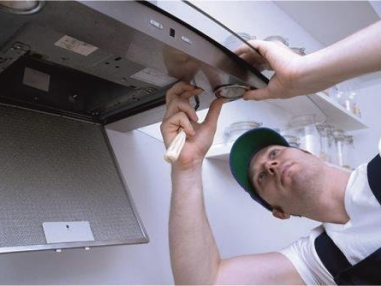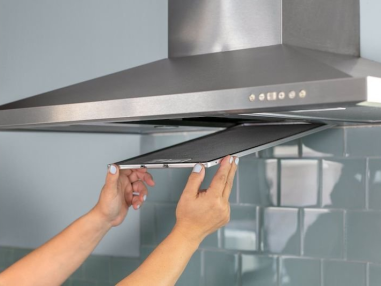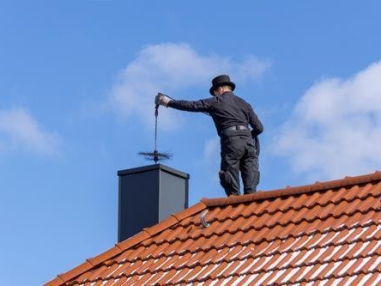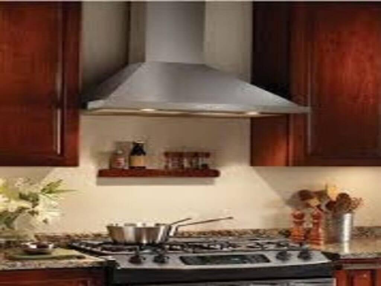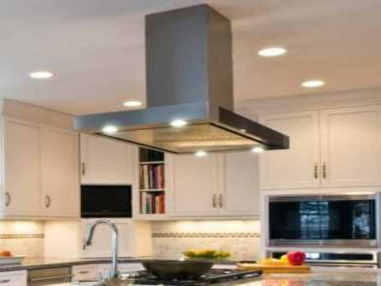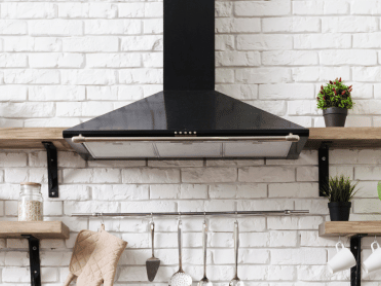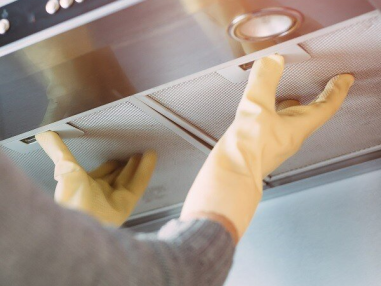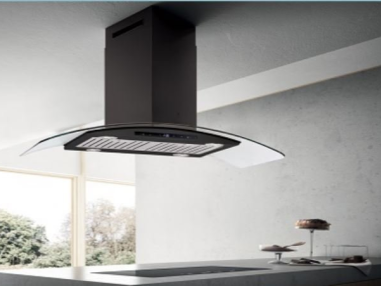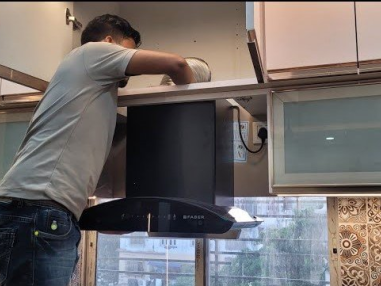Island Chimney Deep Cleaning
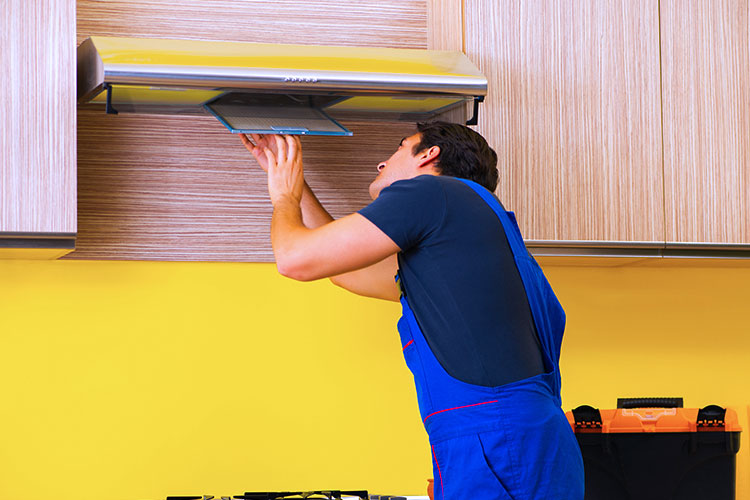
Deep cleaning an island chimney requires more effort and attention to detail compared to basic cleaning. Here's a breakdown to help you decide if you can tackle it yourself:
Suitable for DIY Deep Cleaning (if you have):
Strong Skills and Confidence: You'll likely be working with multiple components in a potentially tight space. Disassembling and reassembling the chimney requires good mechanical skills and knowledge of your specific model.
Advanced Tools: In addition to basic cleaning supplies, you might need a socket wrench set, a putty knife (for scraping stubborn grease), a flashlight for better visibility in concealed areas, and possibly a step stool for reaching higher parts.
Island Chimney Manual: Having the user manual for your specific chimney is crucial. It will provide detailed instructions for disassembly, cleaning specific components, and safe reassembly.
Deep Cleaning Process (General Overview):
Safety First: Turn off the chimney and unplug it from the power outlet. Let it cool completely. Cover the surrounding area with a drop cloth. Wear gloves, safety goggles, and a dust mask for protection.
Disassemble the Chimney (carefully): Following your chimney's manual, remove removable parts like grease filters, the canopy (hood), and any accessible panels or compartments. Be mindful of screws, brackets, and electrical wires during disassembly. Label or bag parts for easier reassembly.
Clean the Removed Parts:
Soak the grease filters in a solution of warm water and baking soda or vinegar for several hours to loosen tough grease. Wash them with warm soapy water and a non- abrasive sponge. Let them dry completely before reinstalling.
Wipe down the canopy, panels, and other disassembled parts with warm soapy water and a non-abrasive cleaning solution (refer to the manual for specific
recommendations). You can use a degreaser for stubborn grease buildup, following the product instructions carefully.
Use a long-handled brush and a vacuum cleaner with a hose attachment to remove dust, cobwebs, and debris from these parts.
Clean the Canopy and Vent (if accessible):
If your chimney manual allows for safe access, use a long-handled brush and the vacuum cleaner to clean the canopy's interior and the reachable areas of the vent
pipe.
Important Note: Deep cleaning the entire vent system, especially if it's long and complex, is highly recommended for professional chimney sweeps. They have the
expertise, tools, and safety measures to ensure a thorough cleaning throughout the venting system, including the roof termination.
Here's where things get trickier for island chimneys compared to wall-mounted ones:
Limited Access: Reaching certain areas of an island chimney, especially underneath or around the central support structure, can be more challenging. Assess your ability to safely access these areas for proper cleaning.
Electrical Components: Island chimneys might have electrical components like lights or motors in closer proximity to other parts. Extra caution is required during
cleaning around these areas to avoid water damage or electrical hazards. Refer to the manual for specific cleaning instructions.
Important Considerations for Deep Cleaning:
Electrical Safety: Be extra cautious when cleaning around electrical components. Ensure the power is off and avoid using excessive moisture in these areas.
Delicate Parts: Handle delicate parts like the motor and control panel with care. Follow the manual's instructions to avoid damaging them.
Weight of Components: The canopy and other parts can be heavy. Enlist help if needed to avoid straining yourself or dropping components during disassembly or
reassembly.
When in Doubt, Consult a Professional: If you're unsure about any step, feel uncomfortable working with certain parts, or suspect a deeper cleaning issue beyond your expertise, call a qualified chimney sweep.
Benefits of Professional Deep Cleaning for Island Chimneys:
Thorough Cleaning: Professional sweeps have specialized tools and techniques to ensure a more comprehensive cleaning throughout the entire venting system,
particularly for complex island chimney designs.
Safety Expertise: They can identify and address potential safety hazards like grease buildup in the vents that could lead to fires, especially important for proper
cleaning around electrical components.
Peace of Mind: They can inspect the chimney for any underlying issues and recommend repairs if necessary. This is particularly valuable for island chimneys due to their unique design and potential for hidden problems.
